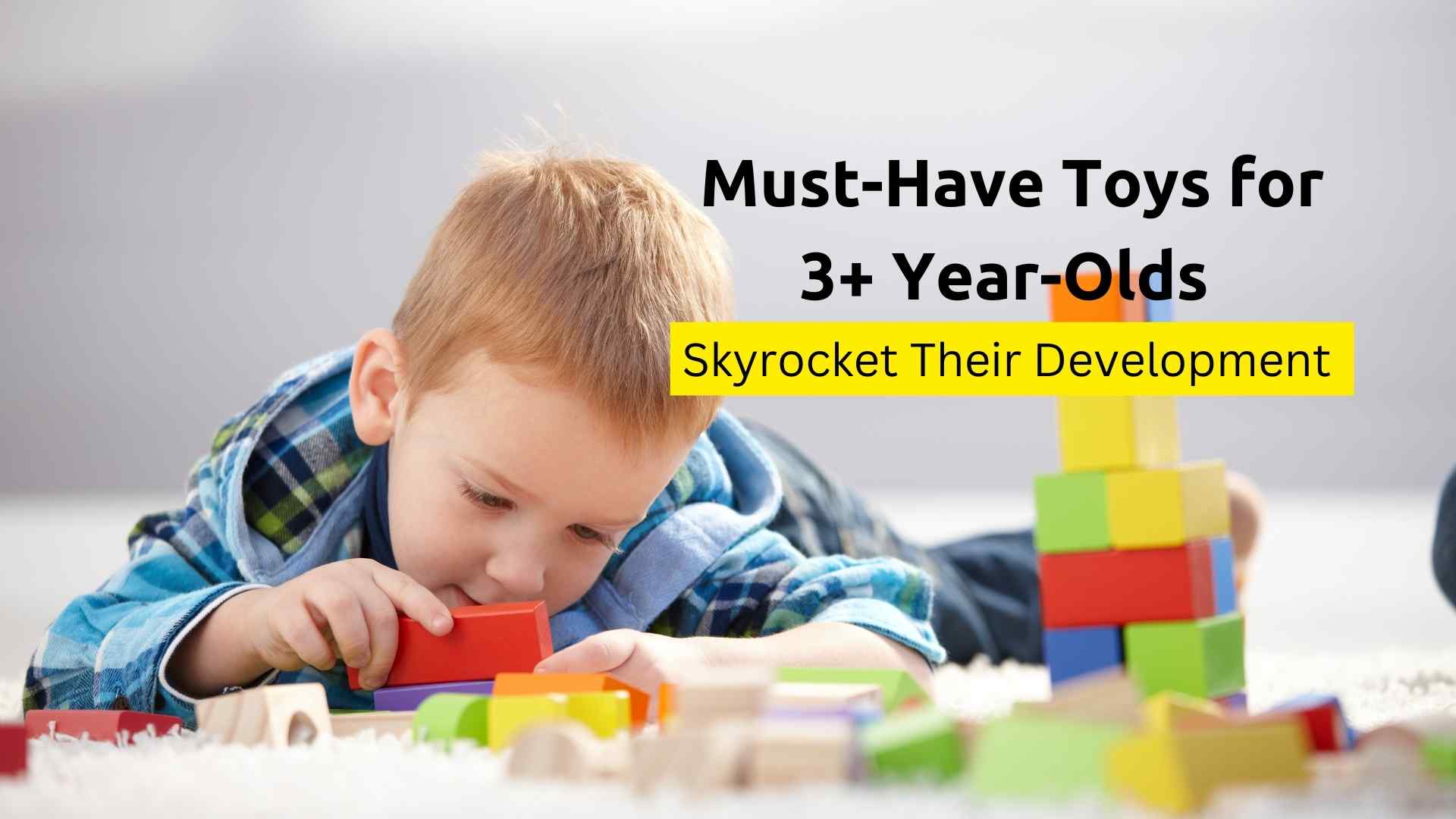Are you also curious to know the right age for a child to start school in India? Well, you’re not alone. As soon as your baby hits 2 years, a lot of people start asking, “When are you enrolling them in school?”
Yes, you read it right. In India, the pressure to start formal education early can be overwhelming for parents. As a mother myself, I faced the same confusion when my daughter turned 3 this May. I wasn’t sure whether to wait another year or start her early. After visiting a few preschools, talking to other parents, and understanding the National Education Policy (NEP) 2020 guidelines, I realized one thing — it’s not just about age; it’s about readiness.
In this blog, we will explore the recommended age for children to start school in India, the importance of early childhood development, and the factors that influence this decision. So, let’s dive in and understand the right age for your little one to begin their educational journey.
Age Criteria for School
| Age | Grade/Level |
| 2.5 to 4 years | Nursery/Pre-School |
| 4 to 5 years | Lower Kindergarten (LKG) |
| 5 to 6 years | Upper Kindergarten (UKG) |
| 6 to 7 years | Class 1 |
| 7 to 8 years | Class 2 |
| 8 to 9 years | Class 3 |
| 9 to 10 years | Class 4 |
| 10 to 11 years | Class 5 |
| 11 to 12 years | Class 6 |
| 12 to 13 years | Class 7 |
| 13 to 14 years | Class 8 |
| 14 to 15 years | Class 9 |
| 15 to 16 years | Class 10 |
| 16 to 17 years | Class 11 |
| 17 to 18 years | Class 12 |
According to the National Education Policy (NEP) 2020, the foundational stage of education in India begins at age 3 and continues till age 8, covering three years of preschool (Nursery, LKG, UKG) followed by Grades 1 and 2.
However, in reality, age criteria can vary slightly across schools. When I enrolled my daughter in Pre-Nursery at 3 years old, I noticed that some schools admitted even younger children, while others had strict age cut-offs. It truly depends on the institution’s policy and your child’s readiness.
As per a 2023 UNICEF India report, around 80% of children aged 3–6 benefit from attending early childhood education programs before joining primary school, developing better social and cognitive skills.
How to Know Your Child is Ready for School?

Well, talking about the right age for a child to start school in India will be incomplete without mentioning how ready the child is. Ideal age may vary, but the child’s emotional, cognitive, and social development plays a key role in determining whether a child is actually ready for school or not.
It is not just about age but whether the child is able to cope with the new environment, routine, and expectations. How do you know that your child is ready for school?
Signs of independence, curiosity, communicating one’s needs, and willingness to mingle with others can be some indicators in this regard. Let’s look at these indicators in more detail to help you decide well for your child.
1. Emotional Readiness
A child should be able to manage common emotions like frustration and disappointment. They should separate from you without extreme distress, indicating that they can handle the emotional demands of school. My daughter would get 100 out of 100 here. In fact, I was more nervous than her. I went to drop her off at school, thinking — what if she needs me, what if she cries, or what if she doesn’t eat her snack? But to my surprise, she just waved at me with a big smile and walked straight into her classroom. That’s when I realized — maybe we, as parents, find it harder to let go than our kids do.
This kind of emotional readiness — being comfortable with short separations and adapting to new environments — is one of the strongest indicators that your child is ready for school.
2. Social Skills
Interacting with other children, sharing toys, and following basic social cues. The child must show interest in playing with peers and understand basic concepts such as taking turns.
3. Communication Skills
He should be able to clearly tell what he needs, like saying to the teacher that he needs to go to the toilet or saying that he needs help with something he does not understand. Language development is key to successful school participation.
4. Independence
A little dependence on parents will always be there in very small children, but those who are ready for school would normally be quite able to dress, eat, and follow short, simple commands by themselves.
Here’s what I would suggest: Encourage self-help habits at home — like wearing shoes or packing a small bag — these build confidence for school routines.
5. Curiosity and Interest in Learning
Is your kid exploring new things, asking questions, or getting excited hearing stories or other new concepts? Such curiosity may indicate preparedness to engage in the curriculum of school.
6. Physically Readiness
The child must be able to sit fairly longer and do particular activities like going to the bathroom alone, self-cleaning, and following simple routines. Physical stamina and coordination can be important in their participation in school activities.
7. Ability to Focus
A young child will have a short attention span; however, being able to attend an activity for a reasonable time (e.g., listening to a story) or to complete a simple activity needs to be taken into account when looking at readiness for school.
Every child develops differently. So don’t compare timelines — compare readiness. Consulting pediatricians, preschool teachers, or child development specialists can also help in making the right decision.
What Are the Pros and Cons of Sending Your Child Late to School?
Well, we all want to know the right age for a child to start school in India; some parents feel the pressure to start their child’s education as soon as they hit the typical age of 2.5 to 3 years, while others prefer a later start.
But what happens when you decide to delay your child’s entry into formal schooling? What are the potential benefits and drawbacks of starting school later?
Let’s dive in and explore the pros and cons of sending your child to school a bit later than the conventional age.
Pros of Sending Your Child Late to School
1. Emotionally More Ready
Children who are a little older when starting school tend to be more emotionally mature. The separations from parents, an orderly school day, and new challenges will usually be faced with great strength and confidence later on.
Later entry can also give children additional months with which to learn the skills of emotional regulation which might also be good for dealing with frustration or disappointment.
2. Social Proficiency
Delaying school entry can allow a child to build more of the critical elements of social competence-empathy, sharing, cooperation, and conflict resolution-through unstructured play with peers.
3. Physical Readiness
More fine and gross motor skills develop, and one can cope with longer sitting periods, independent bathroom visits, and other school routine activities. Thus, a more physically ready child will usually traverse the initial school environment smoothly.
4. Stronger Academic Foundation
A somewhat later entry into the educational process can offer the opportunity for more focused learning at home or in informal environments, such as playgroups.
This will give your child an actual grasp of basics such as numbers, letters, shapes, and colors, really solid groundwork for the future use of formal educational methods.
5. Reduced Stress and Pressure
In some educational systems, the pressure to perform well or at least do better at a very young age can be tremendous. By delaying the age at which they start school, children can often escape the early stress of homework competition, tests, and grades. It can also help keep children interested in learning while avoiding early burnout.
Disadvantages of Sending Your Child to School Late
1. Difficulty in Social Integration
One of the disadvantages is that such a child is likely to adjust less easily when it comes to social integration with those who have already acquired the new environment of school.
Such a child may feel like an “outsider” in the early days of school; this situation can be frustrating for the child as well as the parents. The kid might face trouble adapting to routine and group activities.
2. Missed Early Learning Opportunities
Early schooling is not just about academics but also about learning life skills such as time management, working in groups, and following instructions.
Starting late may mean missing early exposure to these skills in structured settings. The longer the child stays out of school, the more difficult it becomes to catch up with the others academically.
3. Prospective Stigma
In India, societal expectations are strong. Some parents may feel judged if their child starts later, though this perception is slowly changing as more parents prioritize emotional readiness.
4. Limited School Options
Many top schools follow strict age cut-offs. If your child’s age doesn’t meet criteria, it could limit your choice of institutions, especially in metropolitan cities.
Conclusion
The right age for a child to start school in India varies for each child. While the typical age for formal schooling is between 2.5 and 3 years, the decision should be based on your child’s emotional, social, and cognitive readiness.
Whether you choose to start early or delay school entry, what truly matters is that your child feels secure, confident, and happy stepping into the new world of learning. The “right” age is the one where your child is ready — not just the calendar.
As a mom who recently navigated this journey, I can say from experience: listen to your instincts, observe your child closely, and don’t let societal pressure rush your decision.
Note: Age criteria may vary across boards (CBSE, ICSE, IB) and states. Always check the official admission policy of the school you’re applying to.




